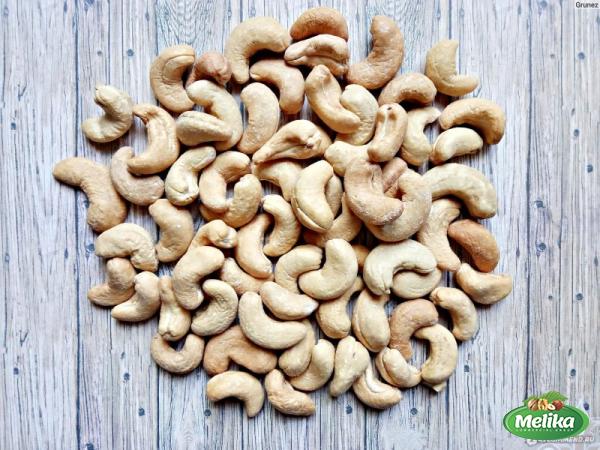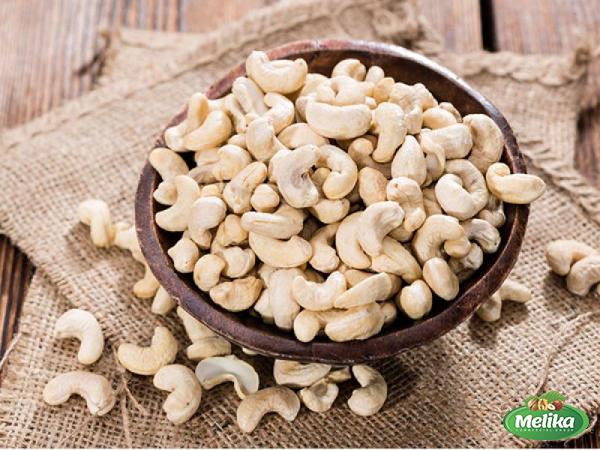Raw cashew shells are an important commodity in the agricultural sector, with a multitude of applications such as energy production, industrial chemicals, and pharmaceuticals. In this article, we will delve into the world of raw cashew shell suppliers, highlighting the key players, analyzing the industry, and exploring the current global market trends. Key Players in the Raw Cashew Shell Supplier Industry: 1. African Cashew Alliance (ACA): As the largest cashew producer in the world, African countries play a significant role in the raw cashew shell market. The ACA works closely with suppliers, providing them with training, resources, and networking opportunities to enhance their capacity and competitiveness. 2. Vietnam Cashew Association (Vinacas): Vietnam is one of the leading cashew processing and exporting countries, making it a major player in the global market. Vinacas promotes sustainable cashew production and acts as a bridge between suppliers and buyers, ensuring fair trade practices. 3. Indian Cashew Industry: India is another prominent country in the cashew industry, both as a consumer and supplier. The Cashew Export Promotion Council of India (CEPCI) represents the interests of Indian suppliers and works towards resolving industry-related issues. 4. Brazilian Agribusiness: Brazil is rapidly emerging as a significant player in the global cashew industry. The country’s agribusiness sector is focusing on raw cashew shell production, exploring new markets, and investing in research and development to increase efficiency and quality. 5. Thai Cashew Nut Industry Association: Thailand, renowned for its high-quality processing infrastructure, has a strong presence in both the raw cashew shell and cashew nut market. The association collaborates with suppliers to implement sustainable practices and enhance overall competitiveness. Industry Analysis: 1. Supply Chain and Processing: Raw cashew shells undergo a series of processing stages including drying, shelling, and grading before being supplied to different industries. Suppliers play a crucial role in ensuring consistency, quality control, and efficient supply chain management. 2. Market Demand: The demand for raw cashew shells is primarily driven by their use in energy production, particularly for biofuel and biomass applications. Additionally, the shell’s potential in the production of industrial chemicals and pharmaceuticals is gaining recognition, further boosting market demand. 3. Export and Import Dynamics: Countries like African nations (Ivory Coast, Nigeria, and Ghana) and Vietnam dominate the raw cashew shell export market, supplying to cashew processing countries such as India and Brazil. However, there is also a rise in intra-continental trade, with African countries processing their own raw cashew shells instead of exporting them in bulk. 4. Emerging Markets: With growing interest in sustainable energy sources, the raw cashew shell market is witnessing increased demand from renewable energy sectors. Asian countries like China, Indonesia, and Malaysia are emerging as potential markets due to their focus on biomass power generation and investment in research and development. Global Market Trends: 1. Sustainability: The global market has seen a noticeable shift towards sustainable practices, with suppliers leveraging certifications like Fair Trade, Rainforest Alliance, and Organic to attract environmentally conscious buyers. Suppliers are increasingly investing in eco-friendly processing methods, recycling waste, and ensuring transparency in the supply chain. 2. Technological Advancements: Automation and advanced processing technologies are becoming increasingly prevalent in the raw cashew shell industry. These advancements enhance production efficiency, reduce labor costs, and minimize waste, enabling suppliers to meet the growing demand while maintaining competitive pricing.

nuts
 3. Research and Development: Continuous research and development efforts are focused on finding innovative ways to extract and utilize the valuable properties of raw cashew shells. This includes exploring chemical extraction techniques, developing new applications for by-products, and improving the overall efficiency of processing methods. 4. Price Volatility: The raw cashew shell market faces fluctuations in prices due to factors such as climate change, political instability, and supply-demand dynamics. Suppliers need to be vigilant and adaptable to such fluctuations by employing risk management strategies and diversifying their customer base. Conclusion: Raw cashew shell suppliers play a vital role in the global market, meeting the demand for sustainable energy sources and contributing to the growing economic significance of the cashew industry. As the industry continues to evolve, suppliers must adapt to emerging market trends, invest in technological advancements, and enhance sustainability practices to maintain a competitive edge in this lucrative market.Raw Cashew Shell Suppliers: Key Players, Industry Analysis, and Global Market Trends Introduction: Raw cashew shells are an important commodity in the agricultural sector, with a multitude of applications such as energy production, industrial chemicals, and pharmaceuticals. As the demand for sustainable energy sources continues to rise, raw cashew shell suppliers play a vital role in meeting this demand and contributing to the growing global cashew industry. In this article, we will delve into the world of raw cashew shell suppliers, highlighting the key players, analyzing the industry, and exploring the current global market trends. Key Players in the Raw Cashew Shell Supplier Industry: 1. African Cashew Alliance (ACA): The African Cashew Alliance (ACA) is a prominent organization working closely with raw cashew shell suppliers in African countries. As the largest cashew producer in the world, Africa plays a significant role in the raw cashew shell market. The ACA provides training, resources, and networking opportunities to suppliers, enhancing their capacity and competitiveness. By promoting sustainable practices and ensuring fair trade, the ACA facilitates the growth and development of the raw cashew shell industry in Africa. 2. Vietnam Cashew Association (Vinacas): Vietnam is one of the leading cashew processing and exporting countries, making it a major player in the global raw cashew shell market. The Vietnam Cashew Association (Vinacas) acts as a bridge between suppliers and buyers, promoting sustainable cashew production and fair trade practices. Vinacas plays a crucial role in ensuring quality control, monitoring export regulations, and facilitating effective communication between suppliers and international markets. 3. Indian Cashew Industry: The Indian cashew industry is a significant player in both the domestic and international raw cashew shell markets. The Cashew Export Promotion Council of India (CEPCI) represents the interests of Indian suppliers and works towards resolving industry-related issues. India, as a leading consumer and supplier, applies advanced processing techniques to produce high-quality cashew products. With the focus on quality control and sustainable practices, the Indian cashew industry remains competitive and holds a strong position in the global market. 4. Brazilian Agribusiness: Brazil’s agribusiness sector is rapidly gaining prominence in the global cashew industry. With abundant natural resources, favorable climate conditions, and strategic investments, Brazil has positioned itself as a key raw cashew shell supplier. The country’s focus on research and development, investment in processing infrastructure, and exploration of new markets contribute to the growth and expansion of Brazil’s raw cashew shell industry. 5. Thai Cashew Nut Industry Association: Thailand has a strong presence in both the raw cashew shell and cashew nut market, with a reputation for high-quality processing infrastructure.
3. Research and Development: Continuous research and development efforts are focused on finding innovative ways to extract and utilize the valuable properties of raw cashew shells. This includes exploring chemical extraction techniques, developing new applications for by-products, and improving the overall efficiency of processing methods. 4. Price Volatility: The raw cashew shell market faces fluctuations in prices due to factors such as climate change, political instability, and supply-demand dynamics. Suppliers need to be vigilant and adaptable to such fluctuations by employing risk management strategies and diversifying their customer base. Conclusion: Raw cashew shell suppliers play a vital role in the global market, meeting the demand for sustainable energy sources and contributing to the growing economic significance of the cashew industry. As the industry continues to evolve, suppliers must adapt to emerging market trends, invest in technological advancements, and enhance sustainability practices to maintain a competitive edge in this lucrative market.Raw Cashew Shell Suppliers: Key Players, Industry Analysis, and Global Market Trends Introduction: Raw cashew shells are an important commodity in the agricultural sector, with a multitude of applications such as energy production, industrial chemicals, and pharmaceuticals. As the demand for sustainable energy sources continues to rise, raw cashew shell suppliers play a vital role in meeting this demand and contributing to the growing global cashew industry. In this article, we will delve into the world of raw cashew shell suppliers, highlighting the key players, analyzing the industry, and exploring the current global market trends. Key Players in the Raw Cashew Shell Supplier Industry: 1. African Cashew Alliance (ACA): The African Cashew Alliance (ACA) is a prominent organization working closely with raw cashew shell suppliers in African countries. As the largest cashew producer in the world, Africa plays a significant role in the raw cashew shell market. The ACA provides training, resources, and networking opportunities to suppliers, enhancing their capacity and competitiveness. By promoting sustainable practices and ensuring fair trade, the ACA facilitates the growth and development of the raw cashew shell industry in Africa. 2. Vietnam Cashew Association (Vinacas): Vietnam is one of the leading cashew processing and exporting countries, making it a major player in the global raw cashew shell market. The Vietnam Cashew Association (Vinacas) acts as a bridge between suppliers and buyers, promoting sustainable cashew production and fair trade practices. Vinacas plays a crucial role in ensuring quality control, monitoring export regulations, and facilitating effective communication between suppliers and international markets. 3. Indian Cashew Industry: The Indian cashew industry is a significant player in both the domestic and international raw cashew shell markets. The Cashew Export Promotion Council of India (CEPCI) represents the interests of Indian suppliers and works towards resolving industry-related issues. India, as a leading consumer and supplier, applies advanced processing techniques to produce high-quality cashew products. With the focus on quality control and sustainable practices, the Indian cashew industry remains competitive and holds a strong position in the global market. 4. Brazilian Agribusiness: Brazil’s agribusiness sector is rapidly gaining prominence in the global cashew industry. With abundant natural resources, favorable climate conditions, and strategic investments, Brazil has positioned itself as a key raw cashew shell supplier. The country’s focus on research and development, investment in processing infrastructure, and exploration of new markets contribute to the growth and expansion of Brazil’s raw cashew shell industry. 5. Thai Cashew Nut Industry Association: Thailand has a strong presence in both the raw cashew shell and cashew nut market, with a reputation for high-quality processing infrastructure.
Specifications of nuts
 The Thai Cashew Nut Industry Association collaborates with suppliers to implement sustainable practices and enhance competitiveness. By ensuring adherence to international standards and promoting efficient supply chain management, the association supports Thai raw cashew shell suppliers in meeting the demands of global markets. Industry Analysis: 1. Supply Chain and Processing: The raw cashew shell supply chain involves various stages of processing, including drying, shelling, and grading. Suppliers play a critical role in ensuring consistency, quality control, and efficient supply chain management. They establish close relationships with farmers and invest in modern processing facilities to meet the demands of different industries. Effective coordination between suppliers, processors, and buyers is essential for seamless operations and delivery of high-quality raw cashew shells. 2. Market Demand: The demand for raw cashew shells is primarily driven by their use in energy production. They are widely used as a biomass fuel, contributing to the renewable energy sector’s growth. Additionally, the chemical and pharmaceutical industries are recognizing the potential of raw cashew shells for the production of industrial chemicals and pharmaceutical extracts. As the global demand for sustainable energy sources continues to rise, the market for raw cashew shells is expected to expand further. 3. Export and Import Dynamics: African countries, such as Ivory Coast, Nigeria, and Ghana, along with Vietnam, dominate the raw cashew shell export market. These countries supply raw cashew shells to cashew processing nations like India and Brazil. However, there is a growing trend towards intra-continental trade, with African countries increasingly processing their own raw cashew shells instead of exporting them in bulk. This shift is driven by the desire to capture more value-added opportunities and reduce dependence on external markets. 4. Emerging Markets: With the global focus on sustainable energy sources, the raw cashew shell market is witnessing increased demand from emerging markets. Asian countries such as China, Indonesia, and Malaysia are emerging as potential markets due to their investment in biomass power generation and sustainable energy initiatives. These countries recognize the environmental benefits of raw cashew shells and their potential as a reliable renewable energy source. Global Market Trends: 1. Sustainability: The global market has witnessed a noticeable shift towards sustainability as a key driving force in purchasing decisions. Raw cashew shell suppliers are increasingly leveraging certifications such as Fair Trade, Rainforest Alliance, and Organic to attract environmentally conscious buyers. They are also investing in eco-friendly processing methods, recycling waste materials, and ensuring transparency in their supply chains. Sustainability initiatives contribute to a positive brand image while meeting the demands of responsible consumers.
The Thai Cashew Nut Industry Association collaborates with suppliers to implement sustainable practices and enhance competitiveness. By ensuring adherence to international standards and promoting efficient supply chain management, the association supports Thai raw cashew shell suppliers in meeting the demands of global markets. Industry Analysis: 1. Supply Chain and Processing: The raw cashew shell supply chain involves various stages of processing, including drying, shelling, and grading. Suppliers play a critical role in ensuring consistency, quality control, and efficient supply chain management. They establish close relationships with farmers and invest in modern processing facilities to meet the demands of different industries. Effective coordination between suppliers, processors, and buyers is essential for seamless operations and delivery of high-quality raw cashew shells. 2. Market Demand: The demand for raw cashew shells is primarily driven by their use in energy production. They are widely used as a biomass fuel, contributing to the renewable energy sector’s growth. Additionally, the chemical and pharmaceutical industries are recognizing the potential of raw cashew shells for the production of industrial chemicals and pharmaceutical extracts. As the global demand for sustainable energy sources continues to rise, the market for raw cashew shells is expected to expand further. 3. Export and Import Dynamics: African countries, such as Ivory Coast, Nigeria, and Ghana, along with Vietnam, dominate the raw cashew shell export market. These countries supply raw cashew shells to cashew processing nations like India and Brazil. However, there is a growing trend towards intra-continental trade, with African countries increasingly processing their own raw cashew shells instead of exporting them in bulk. This shift is driven by the desire to capture more value-added opportunities and reduce dependence on external markets. 4. Emerging Markets: With the global focus on sustainable energy sources, the raw cashew shell market is witnessing increased demand from emerging markets. Asian countries such as China, Indonesia, and Malaysia are emerging as potential markets due to their investment in biomass power generation and sustainable energy initiatives. These countries recognize the environmental benefits of raw cashew shells and their potential as a reliable renewable energy source. Global Market Trends: 1. Sustainability: The global market has witnessed a noticeable shift towards sustainability as a key driving force in purchasing decisions. Raw cashew shell suppliers are increasingly leveraging certifications such as Fair Trade, Rainforest Alliance, and Organic to attract environmentally conscious buyers. They are also investing in eco-friendly processing methods, recycling waste materials, and ensuring transparency in their supply chains. Sustainability initiatives contribute to a positive brand image while meeting the demands of responsible consumers.
buy nuts
 2. Technological Advancements: Automation and advanced processing technologies are becoming prevalent in the raw cashew shell industry. By adopting automated systems and machinery, suppliers enhance production efficiency, reduce labor costs, and minimize waste. Additionally, technological advancements enable suppliers to meet the growing demand while maintaining competitive pricing. Investing in technology not only improves productivity but also ensures the production of high-quality raw cashew shells. 3. Research and Development: Continuous research and development efforts are focused on finding innovative ways to extract and utilize the valuable properties of raw cashew shells. Researchers are exploring chemical extraction techniques to maximize the recovery of valuable compounds. Additionally, there is a growing interest in developing new applications for raw cashew shell by-products, such as cashew nut shell liquid (CNSL). Ongoing research aims to improve processing methods, develop new products, and enhance the overall efficiency of raw cashew shell utilization. 4. Price Volatility: The raw cashew shell market faces price fluctuations due to various factors including climate change, political instability, and supply-demand dynamics. Suppliers need to be vigilant and adaptable to these fluctuations by employing risk management strategies and diversifying their customer base. Engaging in long-term contracts, exploring emerging markets, and mitigating price risks through effective hedging practices are some of the strategies adopted by suppliers to manage price volatility. Conclusion: Raw cashew shell suppliers play a vital role in the global market, meeting the demand for sustainable energy sources and contributing to the growing economic significance of the cashew industry. As the industry continues to evolve, suppliers must adapt to emerging market trends, invest in technological advancements, and enhance sustainability practices to maintain a competitive edge in this lucrative market. By fostering partnerships, promoting sustainable production methods, and exploring new applications, raw cashew shell suppliers contribute to the overall growth and development of the global cashew industry.
2. Technological Advancements: Automation and advanced processing technologies are becoming prevalent in the raw cashew shell industry. By adopting automated systems and machinery, suppliers enhance production efficiency, reduce labor costs, and minimize waste. Additionally, technological advancements enable suppliers to meet the growing demand while maintaining competitive pricing. Investing in technology not only improves productivity but also ensures the production of high-quality raw cashew shells. 3. Research and Development: Continuous research and development efforts are focused on finding innovative ways to extract and utilize the valuable properties of raw cashew shells. Researchers are exploring chemical extraction techniques to maximize the recovery of valuable compounds. Additionally, there is a growing interest in developing new applications for raw cashew shell by-products, such as cashew nut shell liquid (CNSL). Ongoing research aims to improve processing methods, develop new products, and enhance the overall efficiency of raw cashew shell utilization. 4. Price Volatility: The raw cashew shell market faces price fluctuations due to various factors including climate change, political instability, and supply-demand dynamics. Suppliers need to be vigilant and adaptable to these fluctuations by employing risk management strategies and diversifying their customer base. Engaging in long-term contracts, exploring emerging markets, and mitigating price risks through effective hedging practices are some of the strategies adopted by suppliers to manage price volatility. Conclusion: Raw cashew shell suppliers play a vital role in the global market, meeting the demand for sustainable energy sources and contributing to the growing economic significance of the cashew industry. As the industry continues to evolve, suppliers must adapt to emerging market trends, invest in technological advancements, and enhance sustainability practices to maintain a competitive edge in this lucrative market. By fostering partnerships, promoting sustainable production methods, and exploring new applications, raw cashew shell suppliers contribute to the overall growth and development of the global cashew industry.











Your comment submitted.